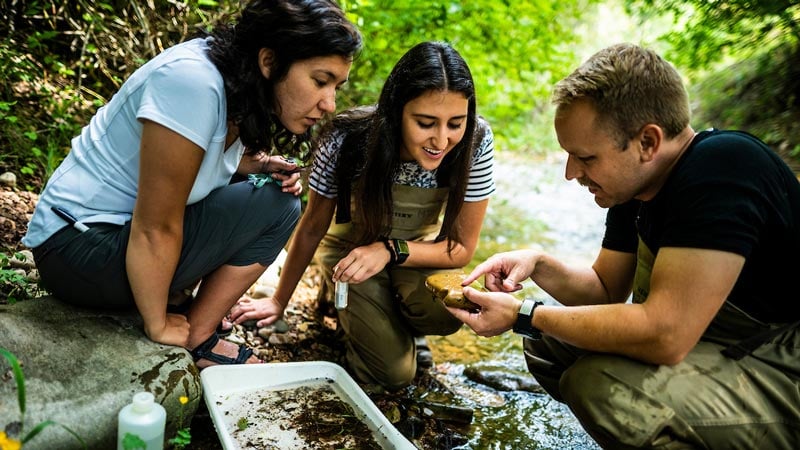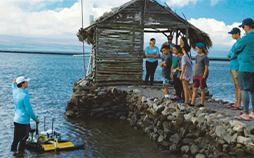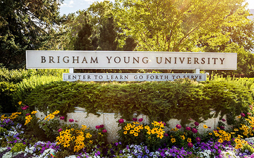Finding Her Passion: Cancer Research
Growing up in South Dakota, DeLaney Anderson had no desire to go to Utah for college. But when she visited BYU campus, she realized it was where God wanted her to be.

In an educational environment focused on hands-on learning, the College of Life Sciences promotes curiosity and understanding through experience.
The college’s departments include Biology; Exercise Sciences; Microbiology & Molecular Biology; Nutrition, Dietetics, & Food Science; Cell Biology & Physiology; Plant & Wildlife Sciences; Public Health; and Neuroscience. The college offers a variety of graduate and undergraduate programs, as well as distinctive opportunities to participate in mentored research, field work, and studies abroad.
The college strives to connect ideas of science and academics to spiritual learning, with the goal of preparing students to build the Kingdom around the world. Emphasis is placed on cultivating a sense of curiosity that inspires discovery as the college provides students with significant experiential learning opportunities.
Support from alumni and friends is vital to many students’ educational success. Donations to the College of Life Sciences allow for student scholarships, internships, research awards, lab experience, and faculty support. Your generosity is greatly appreciated.

Growing up in South Dakota, DeLaney Anderson had no desire to go to Utah for college. But when she visited BYU campus, she realized it was where God wanted her to be.

BYU’s landscaping program just won its 10th National Championship

An interdisciplinary BYU research team traveled to Nepal to measure brick workers’ exposure to pollutants and to assess their respiratory health.

Reefs worldwide are constantly threatened. The Molokai-based conservation nonprofit ‘Āina Momona called on BYU for help.

Biology professors Matthew Bailey and Sam Payne led the largest-ever study on how cancer spreads and affects proteins in the body.

Emily Flake was one of a group of health and wellness students that traveled to Ikaria, Greece, to learn about eating, living, and cooking the Mediterranean way.